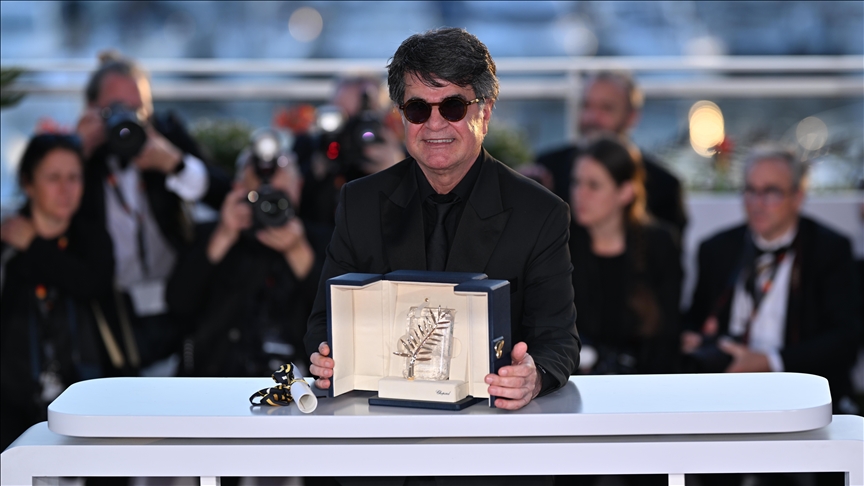'Freedom call' by Cannes-winning Iranian director sparks Iran-France row
Iran accuses France of interference in internal affairs after support for dissident filmmaker Jafar Panahi's Cannes speech
 Jafar Panahi poses with the Palme D'Or award for “It Was Just an Accident” during the Palme D'Or winners photocall at the 78th annual Cannes Film Festival at Palais des Festivals on May 24, 2025 in Cannes, France.
Jafar Panahi poses with the Palme D'Or award for “It Was Just an Accident” during the Palme D'Or winners photocall at the 78th annual Cannes Film Festival at Palais des Festivals on May 24, 2025 in Cannes, France.
TEHRAN / ISTANBUL
Iran has summoned France’s charge d’affaires in Tehran after a French official voiced support for a high-profile Iranian director’s "call for freedom."
The controversy erupted following the Cannes Film Festival, where Iranian dissident filmmaker Jafar Panahi won the prestigious Palme d’Or for his film It Was Only an Accident.
During his acceptance speech, Panahi called on all Iranians to unite for freedom, triggering backlash from state-affiliated Iranian media.
"What's most important now is our country and the freedom of our country. Let us join forces. No one should dare tell us what kind of clothes we should wear, what we should do, or what we should not do," he said.
Iranian state-affiliated media sharply criticized Panahi’s remarks. The semi-official Fars News Agency claimed the Palme d’Or was awarded for “political motives,” while the Student News Network labeled Panahi “a traitorous agent who sold out his country.”
French Digital Affairs Minister Jean-Noel Barrot voiced support for Panahi’s message.
"Jafar Panahi has been awarded the Palme d’Or as a symbol of resistance against the oppression of the Iranian regime—reigniting hope for freedom fighters everywhere," he wrote on X.
In response, Iran’s Foreign Ministry summoned the French charge d’affaires, denouncing Barrot’s comments as “a clear interference in Iran’s internal affairs.”
Iranian Foreign Minister Abbas Araghchi also weighed in on X, posting a screenshot of France’s support for Israeli Prime Minister Benjamin Netanyahu, who faces an International Criminal Court arrest warrant for alleged crimes against humanity.
“There have been many transgressions making a mockery of France’s ‘human rights activism.’ But perhaps nothing has made the hypocrisy as stark as the French approach to the Israeli regime and its war crimes. Spare us Iranians the lectures. You have no moral authority whatsoever,” he wrote.
Panahi has a long history of dissent in Iran. In 2010, he was sentenced to six years in prison for supporting protests after the disputed presidential elections of 2009. Although his sentence was initially not enforced, he was re-arrested in July 2022 after signing a statement criticizing the violent crackdown on the Mahsa Amini protests.
He was later released but remains banned from professional filmmaking within Iran.








